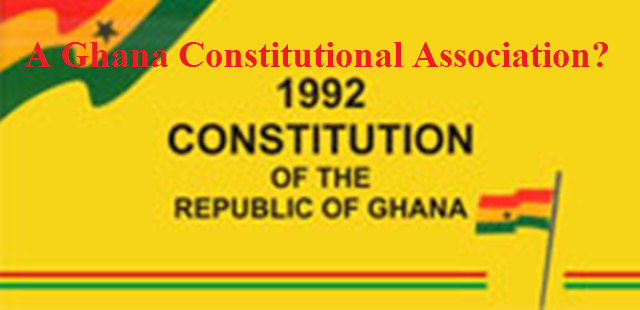Welcome
....to JusticeGhana Group

JusticeGhana is a Non-Governmental [and-not-for- profit] Organization (NGO) with a strong belief in Justice, Security and Progress....” More Details
Ghana's Constitutional RoadMap
- Details
- Parent Category: Our Country
- Category: History
- Published Date
- Hits: 11758
Ghana's Constitutional RoadMap
The aftermath of Asante (or Sagrenti) War of 1874 which led to the landmark introduction of the Gold Coast Constitution of 1874 and the annexation of the Asante Kingdom to become a British Protectorate in 1885, can hardly be overlooked by history enthusiasts and constitutional lawyers. Thus for the first time in our history, Gold Coast had two distinct organs of government- a Legislative Council and Executive Council. The presence of John Mensah Sarbah (the first Gold Coast lawyer) as a Council appointed member and his launching of the Aborigines’ Rights Protection Society later in 1898, against the backdrop of Colonial Legislation which sought to convert all Gold Coast’s lands into Crown land, that was defeated and repealed, demonstrated perhaps, the genuine interest of the British Colonial rulers in constitutionalism (7).
Assuming this was true; one might have argued that why then the War of 1900? It must be considered that although the Legislative Council of 1874 was a significant step for the Gold Coaster, the Council was composed of just three unofficial members and four official members presided over by the Governor who had the sole power of policy formulation and implementation. The 1916 Constitution wherein more official members- three Paramount Chiefs and three educated Gold Coasters were added to the Council, sought, arguably, to address this constitutional deficit. But it left much to be desired by the Gold Coaster (8).
The launching of the National Congress of British West Africa by Casely Hayford of the Aborigines Rights Protection Society (ARPS) of fame in 1917, whose petition to the British Governor in 1920, notwithstanding its criticisms of not having the mandate of the Gold Coast people, remains the corner- stone of the granting of electoral rights to some legislative and municipal councils and the establishment of Achimota College- hereafter, the University of Ghana, Legon. With this in mind, the Constitution of 1925- the Guggisberg Constitution, that denied among others, the African a place in the Executive Council and approved separate development of the Asanteman and the North- which until 1934, was not under the authority of Legislative and Executive Council and the Southern Gold Coast, on the other score, exposed itself to obvious censure as it was perceived as championing indirect rule (9).
Appearing similar in our generation, the irony then was that while the educated elites saw the Provincial Council as a perpetuation of colonialism, the chiefs saw themselves as representative of the people and believed that through participation in the new British-designed political institutions they could continue to perform their age-old functions of protecting the interests of their peoples. Thus the rulers considered the educated elites as being more interested in gaining power than advancing the interests of the masses (10).
We note that the educated elites on the other hand saw the chiefs to have become stooges of the colonial regime, more interested in perpetuating the system under which they had more power than the pre-colonial rule. So by 1934 Gold Coast, according to Adigwe, was in political eclipse- stretching itself out of the Sedition and the Water Works Bill for accelerated pace towards self-government. The JusticeGhana does not know when our contemporary elected presidents and selected chiefs, will no longer be bullied on these criticisms.
The Water Bill which came at the dawn of the Second World signalled the Gold Coaster of future erosion of “what they might have honestly or erroneously considered to be their rights unless representative government was established.” As usual the Aborigines’ Rights Protection Society and representatives of Provincial Council in the Legislative Councils ((were known for their encounters)), they fiercely opposed the Bills. Though unsuccessful in their bid in London for the repeal of the Bill which became a law, their opposition played a crucial role in the 1939 election wher Africans who were not Chiefs did also stand for election and were without political hinderance, elected as representatives of the Provincial Councils in the Legislator.
It worth noting that constitutional development in our country continued despite the outbreak and the untold scourges of the Second World War. For in 1944, representatives of Asante Kingdom, were elected for the first time ever into the Legislative Council which from then on, legislated for Asanteman (11).





